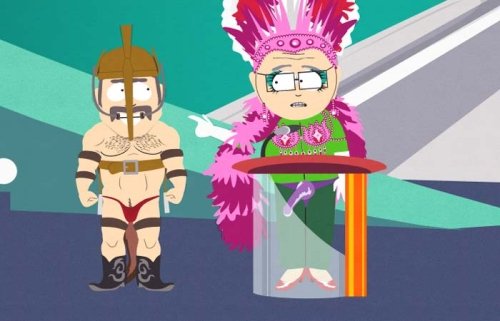Tolerance, Freedom and their paradoxes

Seeing how life has recently decided to invade my leisure time on a constant basis, resulting in a frustrating postpone of research into a subject that was intended for this post, I decided to go with something I studied at university – political theory. For my first post, in what I hope to be a series of articles, I bring you Tolerance, Freedom and their paradoxes.
We all know what tolerance is, but just to be on the safe side, let’s see what the Merriam-Webster online dictionary says about it.
“Sympathy or indulgence for beliefs or practices differing from or conflicting with one's own.”
It is a necessity for a truly free society in which one’s freedom doesn’t invade the the freedom of others. Without tolerance there would be no free press(1), minority rights, multiculturalism, LBGT+ rights and we would most probably end up in tribal-like communities. Speaking of the tribal-like, enter the, not to use too strong of a word, overly conservative.
As they tend to have issues with the notion of equality(2), tolerance just doesn’t sound good to them. So they attack it. With logic and reason. Or so they think. Their argument goes something like - ‘you say you are tolerant, but you don’t tolerate murderers, racists, etc… This shows that tolerance is not logical, it is irrational’.
But they are missing one crucial thing. You can’t approach tolerance as an absolute black-or-white principle. Ok, you can, but observations and conclusions from that approach can’t be applied to society which is everything but monochromatic. Just imagine if we approached freedom in that way, claiming that everybody should be absolutely free to do what they want. Would that kind of society function?
As with tolerance, you can not have absolute freedom for one simple reason. Absolute freedom (and tolerance) mean that nothing is stopping me from harming others, it’s my freedom to smash somebody’s skull with a rock if I want to (and you should tolerate it!). I would rather argue that one’s freedom extends only to the point where it does not undermine the freedom of others. Absolute freedom means the death of freedom.
To deal with all of this we have paradoxes, which only appear when you are viewing freedom and tolerance as a 1 or 0. Absolute principles or no obligation to them. Both state that unlimited tolerance/freedom lead to their disappearance. As Karl Popper put it in his book “The Open Society and his enemies”(3)
“Unlimited tolerance must lead to the disappearance of tolerance. If we extend unlimited tolerance even to those who are intolerant, if we are not prepared to defend a tolerant society against the onslaught of the intolerant, then the tolerant will be destroyed, and tolerance with them.”
And that is the paradox of tolerance (as well as freedom). Complete uncritical tolerance is detrimental to tolerance.
I would propose a different view of tolerance, one that does not rely on a “pure” vision of tolerance. I would propose that tolerance has it’s limits, the limit being the boundaries of one’s freedom in relation to the freedom of others. If one’s freedom invades the space of freedom of others, they should not be tolerated. As long as your freedom doesn’t undermine the freedom of others, we will tolerate you. The moment that changes, and your actions harm other people, you should not be tolerated by society. To refer to Karl Popper once more:
“In this formulation, I do not imply, for instance, that we should always suppress the utterance of intolerant philosophies; as long as we can counter them by rational argument and keep them in check by public opinion, suppression would certainly be unwise. But we should claim the right to suppress them if necessary even by force; for it may easily turn out that they are not prepared to meet us on the level of rational argument, but begin by denouncing all argument; they may forbid their followers to listen to rational argument, because it is deceptive, and teach them to answer arguments by the use of their fists or pistols. We should therefore claim, in the name of tolerance, the right not to tolerate the intolerant.”
And that is how the paradox of tolerance solves the problem with uncritical tolerance towards everything. We should only tolerate customs and practices that do not harm others.
I would love to hear your opinion on this subject in the comments, I would be happy to discus both of these terms with you. What are your views on tolerance and freedom?
P.S. Couldn’t resist to post a South Park video; this one explains the difference between tolerance and acceptance.
P.P.S. Does anybody know how to user superscript and subscript on steemit? It would make formating of the text much easier.
1 – I would like to note here that freedom of speech is differently approached in the US and in the EU. In America freedom of speech (as well as hate speech) is protected by the first amendment, not to go into too much detail. The EU has a different approach, while maintaining the right of free speech, it also criminalizes publicly inciting to violence or hatred directed against a group of persons or a member of such a group defined by reference to race, colour, religion, descent nationality or ethnicity.
2 – Not to be confused with uniformity, an issue I hope to tackle later in one articles.
3 – I would argue with other points from this book, but this one I accept fully.
